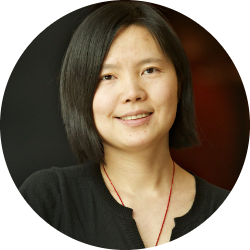Cet atelier s’adressait aux chercheurs et étudiants de doctorat en sciences économiques qui s’intéressent à l’économie des ressources naturelles et de l’environnement.
L'atelier du 10 février a accueillit Jie He, professeure titulaire à l'Université de Sherbrooke et chercheuse CIRANO et Guy Martial Takam Fongang, Étudiant Ph.D. à l'UQAM.
Jie He (Université de Sherbrooke)
- Endogeneity of income elasticity of Willingness to Pay for better air quality: Substitution effect from a closer private environmental substitute
- In this paper, based on a contingent valuation survey on people’s WTP for better air quality in the city of Nanjing, China, we estimate the income elasticity of WTP. Our results report lower-than-one income elasticity of WTP, for both a public air quality improvement project and a private vaccine. The split-sample strategy adopted in our survey also allows us to reveal that the income elasticity of WTP for a private vaccine is more than two times higher than that of the public air quality improvement project. Our estimates reveal the lower-than-one income elasticity of WTP for better air quality can be further reduced due to the presence of substitute in the bundle of people’s private consumption goods. However, such pattern in income elasticity is found to be significant only for WTP for the public air quality improvement project and when the private substitute occupies a significant share in people’s income. Based on our estimate and the information about the share of household purchasing air purifier for different income levels, we reproduced a Drupp et al. (2018) style graphical analysis and find the income inequality and existence of private preventive substitute can result in a much earlier bending down in the curvature of the relationship between WTP and income, therefore reinforce the influence of inequality income on societal mean WTP for public air quality improvement project.
Guy Martial Takam Fongang (doctorant, UQAM)
- Value of direct seeding mulch-based cropping system to field crop farmers
- Direct seeding mulch-based cropping system (DMC) is often boasted to provide diverse ecosystem services, but its implementation may impose a private cost that often limits its adoption by farmers. This study uses a contingent valuation method and a double hurdle model to estimate Quebec farmers’ willingness to accept (WTA) for adopting DMC and to analyse the underlying factors associated with Results show that farmers would demand on average 161 Canadian dollars/ hectare as compensation for adopting DMC. This compensation increases to 297 CAD/hectare when the minimum WTA for adopting DMC is asked for each pillar of DMC individually thus suggesting some complementarity between the three pillars of DMC. Our results also show that farmers are willing to convert into DMC only 25.5% of their farm size. While results show that the adoption of DMC is positively driven by the easiness of implementing DMC and farmers’ perception of yield of DMC, they also show that farmers’ WTA for adopting DMC increases with farmers’ perception of risk and yield, agricultural training and farm size; and decreases with the age of farmers and if the farmers know a DMC producer. Government should therefore pay attention to the above factors and adapts the compensation for adopting DMC considering these factors.

